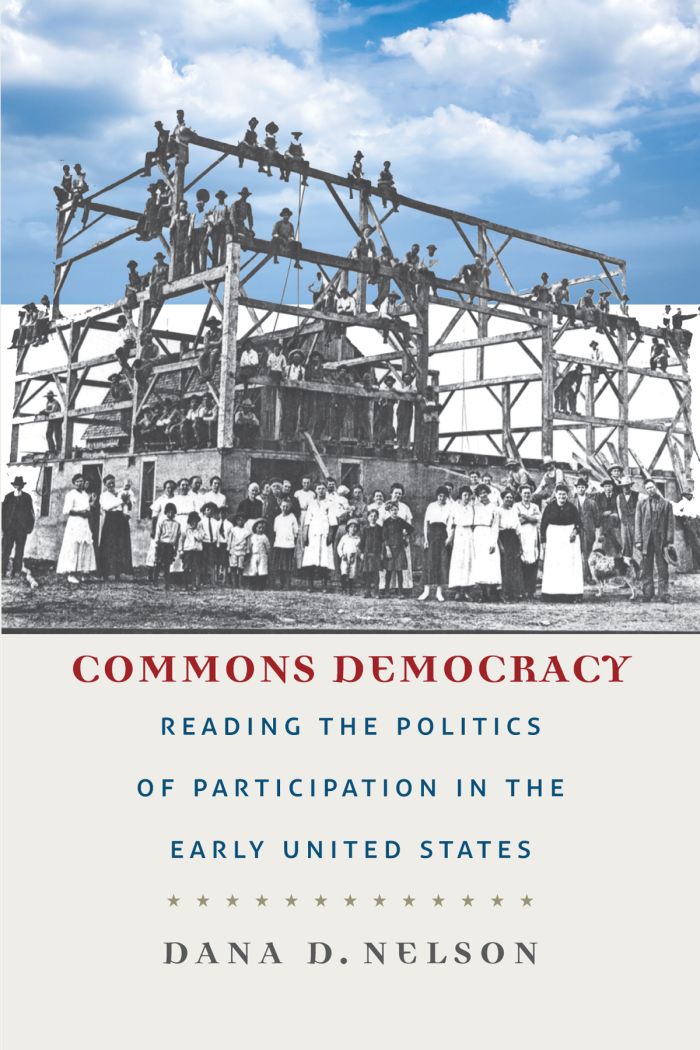Commons Democracy
Reading the Politics of Participation in the Early United States

This book can be opened with

Commons Democracy highlights a poorly understood dimension of democracy in the early United States. It tells a story that, like the familiar one, begins in the Revolutionary era. But instead of the tale of the Founders’ high-minded ideals and their careful crafting of the safe framework for democracy—a representative republican government—Commons Democracy examines the power of the democratic spirit, the ideals and practices of everyday people in the early nation. As Dana D. Nelson reveals in this illuminating work, the sensibility of participatory democratic activity fueled the involvement of ordinary folk in resistance, revolution, state constitution-making, and early national civic dissent. The rich variety of commoning customs and practices in the late colonies offered non-elite actors a tangible and durable relationship to democratic power, one significantly different from the representative democracy that would be institutionalized by the Framers in 1787. This democracy understood political power and liberties as communal, not individual.
Ordinary folk practiced a democracy that was robustly participatory and insistently local. To help tell this story, Nelson turns to early American authors—Hugh Henry Brackenridge, James Fenimore Cooper, Robert Montgomery Bird, and Caroline Kirkland—who were engaged with conflicts that emerged from competing ideals of democracy in the early republic, such as the Whiskey Rebellion and the Anti-Rent War as well as the enclosure of the legal commons, anxieties about popular suffrage, and practices of frontier equalitarianism. While Commons Democracy is about the capture of “democracy” for the official purposes of state consolidation and expansion, it is also a story about the ongoing (if occluded) vitality of commons democracy, of its power as part of our shared democratic history and its usefulness in the contemporary toolkit of citizenship.
“Commons Democracy is an exhilarating and compelling account of early U.S. forms of participatory democracy that have largely disappeared from critical view behind the shadow of the dominant account of the Founders’ creation of formal electoral democracy.”——Elizabeth Maddock Dillon, Northeastern University
An important contribution, at a vital moment, to renewing appreciation of democracy as the awkward practice of sharing power to shape common existence.——Wendy Brown, University of California, Berkeley
“Nelson focuses in this book on a dynamic aspect of U.S. history, one that is already quite relevant in our own time and that promises to be increasingly so in the future.”——John Ernest, University of Delaware
...not only is Dana Nelson's field unexpected but so is her creative and welcome approach to studying early American democracy, that is, through the lens of literary texts, with most of them, in fact, critical of that to which they gave voice. Her use of literature to explore that which otherwise might go unobserved is something sorely and long needed...—Early American Literature
...highly recommended as an initial foray for students—especially at the undergraduate level—into the thickets of the American novel’s reception of the political system in the Early Republic.—Amerikastudien / American Studies

